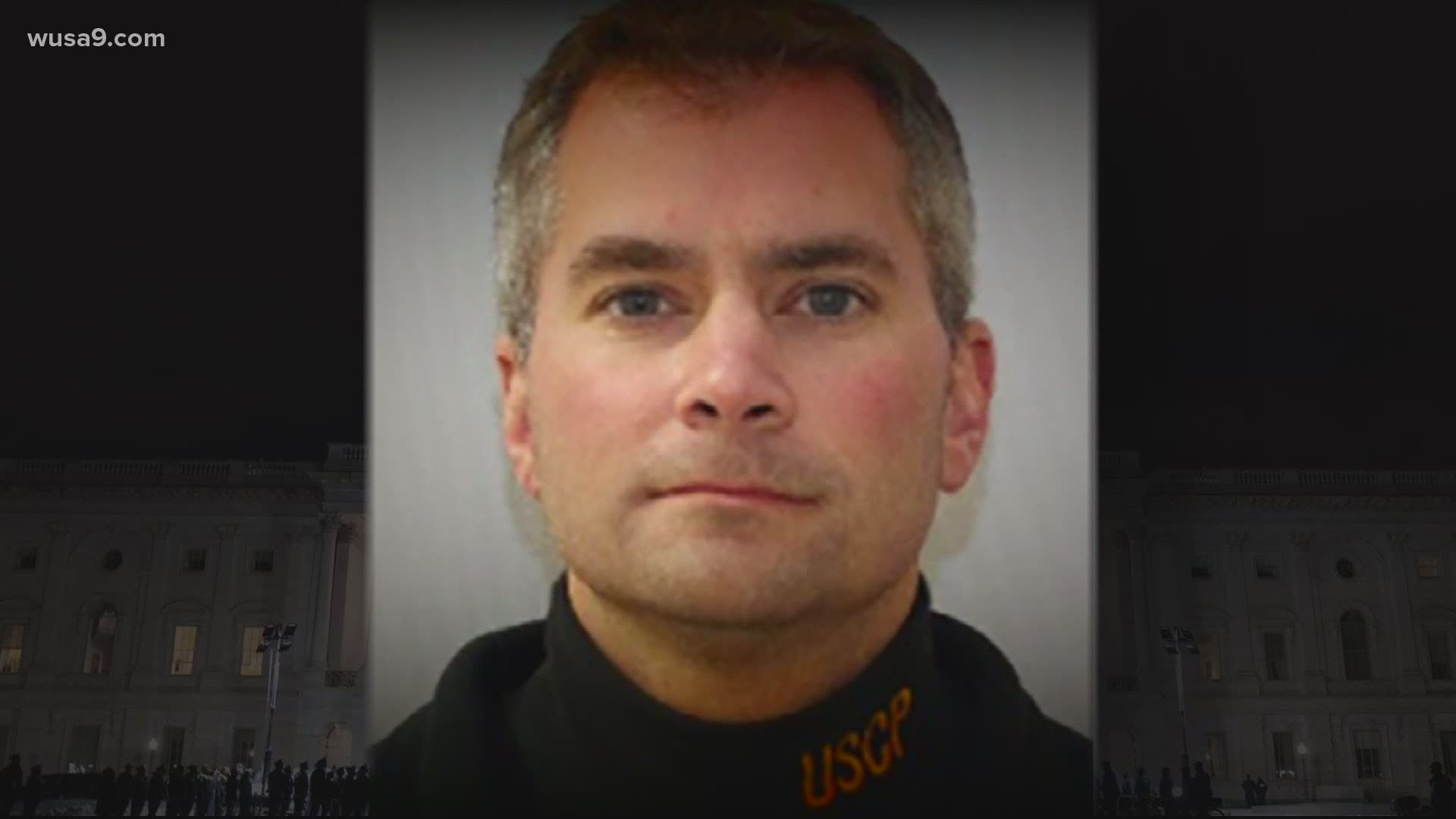WASHINGTON — U.S. Capitol Police Officer Brian Sicknick died of natural causes the day following the Capitol riot after suffering two strokes, the D.C. Office of the Chief Medical Examiner ruled Monday.
Chief Medical Examiner Dr. Francisco J. Diaz said Sicknick died of “acute brainstem and cerebellar infarcts due to acute basilar artery thrombosis,” or strokes caused by blockages in the arteries in his brain and brainstem.
Diaz ruled Sicknick’s death was due to natural causes, which he specified in an addendum to the release means that “disease alone causes death.”
“If death is hastened by an injury, the manner of death is not considered natural,” Diaz said.
The medical examiner’s office also included a timeline of Sicknick’s death in its release:
- At 2:00 p.m. on Wednesday, January 6, Sicknick was sprayed with a chemical substance outside the U.S. Capitol building.
- At approximately 10:00 p.m., he collapsed at the Capitol and was transported to a nearby hospital.
- At approximately 9:30 p.m. on January 7, he died at the hospital.
Diaz’s ruling means the chemical irritant assault – which two men, Julian Kahter and George Tanios, have been charged for – is not attributable for Sicknick’s death, and may effectively prevent the Justice Department from bringing homicide charges in the case.
Khater and Tanios are charged with assaulting multiple officers, including Sicknick, with bear spray, but were not charged with his death.
While bear spray is extremely noxious and irritating, Dr. Kelly Johnson-Arbor, the medical director at the National Capitol Poison Center, told WUSA9 in an interview earlier this year that she wasn’t aware of any human deaths due to exposure to the chemical.
The Capitol Police department issued a statement after Sicknick’s death saying he “was injured while physically engaging with protestors.” Acting Capitol Police Chief Yogananda Pittman testified before Congress in February that the department considered Sicknick’s death to be in the line of duty. On Monday, the department reaffirmed that with a response to the medical examiner's ruling:
“The USCP accepts the findings from the Office of the Medical Examiner, but this does not change the fact Officer Brian Sicknick died in the Line of Duty, courageously defending Congress and the Capitol. The Department continues to mourn the loss of our beloved colleague. The attack on our officers, including Brian, was an attack on our democracy. Working with the U.S. Attorney’s Office for the District of Columbia, the F.B.I.’s Washington Field Office and the Metropolitan Police Department, the USCP will continue to ensure those responsible for the assault against officers are held accountable....
"The United States Capitol Police will never forget Officer Sicknick’s bravery, nor the bravery of any officer on January 6, who risked their lives to defend our democracy."
Following his autopsy in January, Sicknick’s body was cremated and his remains lay in honor in the Capitol Rotunda. The medical examiner’s office did not say why it took more than 100 days to release the results of that autopsy.
We're tracking all of the arrests, charges and investigations into the January 6 assault on the Capitol. Sign up for our Capitol Breach Newsletter here so that you never miss an update.

